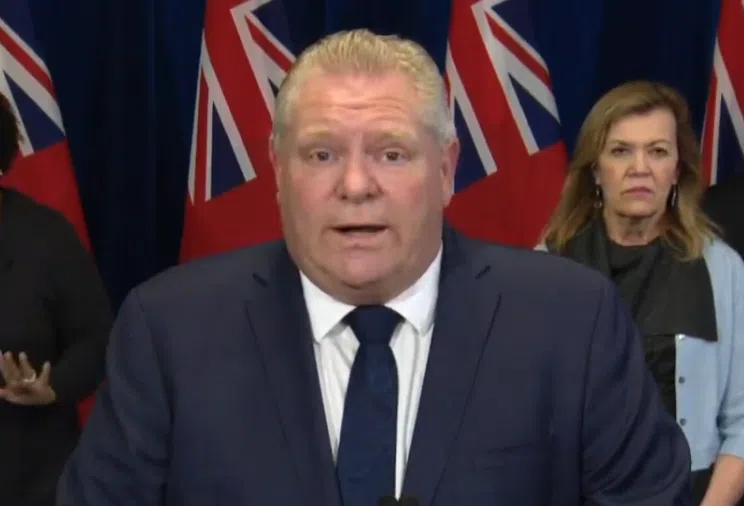
The province is increasing mental health services for those struggling to deal with the COVID-19 pandemic.
Premier Doug Ford says what we are seeing is hard to process, hard to comprehend and hard to deal with.
Ford admits self-isolation can be hard on everyone but stresses you aren’t alone and the province is listening.
He says dealing with the evolving crisis puts a lot of stress on everyone, including people who are self-isolating, families with kids out of school, and those who keep us safe each and every day.
The government is providing $12-million to immediately expand online and virtual mental health supports to those who need it.
Ford adds another $2.6-million is being spent to hire new psychologists and other mental health workers to support men and women in uniform.
Ford says they are also providing dedicated therapy for front-line workers to help them through this challenge.
He notes the current events are putting a physical and mental strain on essential employees.
“They’re working long hours. They see tragedy every single day. They are making really, really tough decisions.”
In his daily address to the province on Thursday, Ford pleaded “If you are struggling. Please reach out. Talk to someone. If you know someone who may be struggling, talk to them, pick up the phone. During these difficult days, we all need to stick together. Let’s keep the Ontario spirit alive.”
The Premier promoted several agencies they are working with including:
1. BounceBack: A guided self-help program for adults and youth aged 15 and over using workbooks and online videos and phone coaching support.
2. Kids Help Phone: 24/7 virtual support service offering professional counselling, information and referrals as well as volunteer-led, text-based support to young people in both English and French at 1-800-668-6868.
3. Internet-based Cognitive Behavioural Therapy (iCBT): Online CBT, supported by therapists; available in English and French.
4. iCBT for frontline health care workers: Online CBT targeted at frontline health care workers experiencing anxiety, burnout or PTSD. Those requiring intensive levels of care could be referred to virtual face-to-face care.
5. Training for Brief CBT-based interventions: Training will be provided to frontline workers in organizations such as Telehealth and emergency departments in order to better support individuals experiencing acute anxiety due to the pandemic.
We know people are stressed, they’re worried, and they’ve had a great disruption to their daily lives. We’re expanding online and virtual mental health supports to support those finding the COVID-19 crisis challenging. pic.twitter.com/fJKY7DwWFB
— Doug Ford (@fordnation) April 3, 2020



